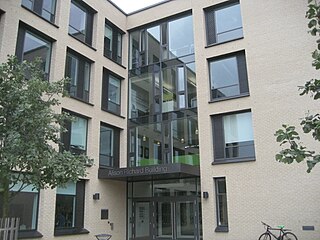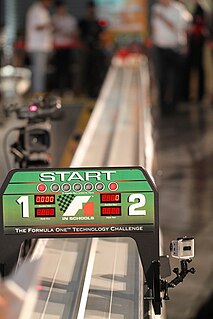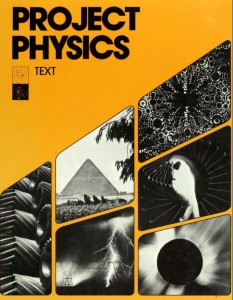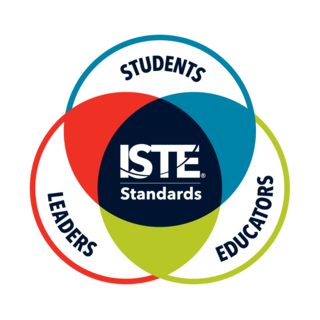 W
WProject 211 was a project of National Key Universities and colleges initiated in 1995 by the Ministry of Education of the People's Republic of China, with the intent of raising the research standards of high-level universities and cultivating strategies for socio-economic development. During the first phase of the project, from 1996 to 2000, approximately US$2.2 billion was distributed.
 W
WProject 985 was a project that was first announced by General Secretary of the Chinese Communist Party Jiang Zemin at the 100th anniversary of Peking University on May 4, 1998, to promote the development and reputation of the Chinese higher education system by founding world-class universities in the 21st century. The name derives from the date of the announcement, May 1998, or 98/5 according to the Chinese date format. The project involves both national and local governments allocating large amounts of funding to certain universities in order to build new research centers, improve facilities, hold international conferences, attract world-renowned faculty and visiting scholars, and help Chinese faculty attend conferences abroad. According to the latest rankings of the Academic Ranking of World Universities, the Times Higher Education World University Rankings and the U.S. News & World Report Best Global University Ranking, most of the 39 universities in the Project 985 are ranked among the top 500 universities in the world.
 W
WAfri Twin is an international school linking initiative that facilitates mutually beneficial partnerships between students and teachers at schools in the United Kingdom and South Africa. It was founded in 2001 by Jayne Martin, a South African then living in the United Kingdom who has since returned to South Africa. Afri Twin provides support for the programme by matching schools with suitable partners, providing guidance to participating schools and arranging workshops and other networking events. The benefits of Afri Twin partnerships include global learning, greater cultural tolerance and the improvement of learning facilities in disadvantaged schools. In 2010, there were over 250 schools in the United Kingdom and South Africa participating in the initiative.
 W
WAmerica's Children's Museum on Wheels: StoryBus is a children's literacy museum on wheels that visits schools and community events in the Chicago area. Housed inside a 37-foot Winnebago, the bus promotes reading to students at the kindergarten and pre-k levels. Filled with a rotating collection of hands-on interactive exhibits, the StoryBus transports children inside the worlds of favorite children's stories, such as The Little Red Hen, The Three Little Pigs, and Goldilocks and the Three Bears.
 W
WThe Centre for Research in the Arts, Social Sciences and Humanities (CRASSH) is an interdisciplinary research centre within the University of Cambridge. Founded in 2001, CRASSH came into being as a way to create interdisciplinary dialogue across the University’s many faculties and departments in the arts, social sciences, and humanities, as well as to build bridges with scientific subjects. It has now grown into one of the largest humanities institutes in the world and is a major presence in academic life in the UK. It serves at once to draw together disciplinary perspectives in Cambridge and to disseminate new ideas to audiences across Europe and beyond.
 W
WThe Digital Classicist is a community of those interested in the application of digital humanities to the field of classics and to ancient world studies more generally. The project claims the twin aims of bringing together scholars and students with an interest in computing and the ancient world, and disseminating advice and experience to the classics discipline at large. The Digital Classicist was founded in 2005 as a collaborative project based at King's College London and the University of Kentucky, with editors and advisors from the classics discipline at large.
 W
WThe European Democratic Education Community (EUDEC) is a European non-profit organisation that promotes democratic education as a sensible educational model for all democratic states. EUDEC aims to further democratic education in Europe. Founded in February 2008 as a project of the United Kingdom-based Phoenix Education Trust, the organisation has been an independently registered non-profit NGO in Germany since 2009.
 W
WF1 in Schools is an international STEM (science, technology, engineering, mathematics) competition for school children (aged 11–19), in which groups of 3–6 students have to design and manufacture a miniature car out of the official F1 Model Block using CAD/CAM design tools. The cars are powered by CO2 cartridges and are attached to a track by a nylon wire. They are timed from the moment they are launched to when they pass the finish line by a computer.
 W
WA field trip or excursion is a journey by a group of people to a place away from their normal environment.
 W
WProject Gutenberg (PG) is a volunteer effort to digitize and archive cultural works, as well as to "encourage the creation and distribution of eBooks." It was founded in 1971 by American writer Michael S. Hart and is the oldest digital library. Most of the items in its collection are the full texts of books in the public domain. The Project tries to make these as free as possible, in long-lasting, open formats that can be used on almost any computer. As of 20 May 2020, Project Gutenberg had reached 62,108 items in its collection of free eBooks.
 W
WHarvard Project Physics, also called Project Physics, was a national curriculum development project to create a secondary school physics education program in the United States during the Cold War era.
 W
WThe ISTE Standards, formerly known as the National Educational Technology Standards (NETS), are standards for the use of technology in teaching and learning. They are published by the International Society for Technology in Education (ISTE), a nonprofit membership association for educators focused on educational technology. They include the ISTE Standards for Students, which list skills and attitudes expected of students. They also include the ISTE Standards for Educators, ISTE Standards for Administrators, ISTE Standards for Coaches and ISTE Standards for Computer Science Educators.
 W
WLabdoo.org is a non-profit collaborative social network which brings recycled Laptops loaded with educational applications to schools throughout the world without incurring any economic cost and without generating additional CO2 emissions to the Planet. Through the collaboration of thousands of people around the globe, the Labdoo humanitarian platform has grown to support over 1600 schools in more than 130 countries, deploying more than 280 operational hubs spread over the five continents, benefiting more than 500,000 students from around the globe.
 W
WThe Norwegian Writers for Children was founded in 1947. The association, composed of authors who write fiction for children and young people, promotes the interests of writers of books for children and young people and encourages literature for children and young people. NBU has almost 300 members.
 W
WA Philosothon is an annual competition wherein students explore philosophical and ethical issues. Philosothons are held in all Australian states, New Zealand, and the UK.
 W
WThe Rosetta Project is a global collaboration of language specialists and native speakers working to develop a contemporary version of the historic Rosetta Stone to last from 2000 to 12,000 AD; it is run by the Long Now Foundation. Its goal is a meaningful survey and near permanent archive of 1,500 languages. Some of these languages have fewer than one thousand speakers left. Others are considered to be dying out because language policy based on an official language is increasing the prevalence of major languages that are used as the medium of instruction in public schools and national media. The intention is to create a unique platform for comparative linguistic research and education, as well as a functional linguistic tool that might help in the recovery or revitalisation of lost languages in the future.
 W
WThe Speaker is a 2009 British television series, broadcast on BBC Two. It is a talent show type series that aimed to find the best young speaker in the United Kingdom. The show is narrated by Jane Horrocks. The three judges are stand-up comedian Jo Brand, former basketball player and psychologist John Amaechi and Jeremy Stockwell.
 W
WThe STARSHINE series of three artificial satellites were student participatory missions sponsored by the United States Naval Research Laboratory.
 W
WThe Story Factory is an Australian not-for-profit organisation designed to help indigenous and disadvantaged children aged between 7 and 17 years to develop their writing and storytelling skills. The programs run by the Story Factory aim to help young people, particularly those most at risk of losing confidence and then losing interest in schooling. The Story Factory conducts programs at its two creative writing centres, as short and long term residencies at primary and secondary schools, and as one-off visits.
 W
WVirtual Portal for Impaired Groups Interaction (ViPi) is a project partially funded by the European Union (EU) under the Lifelong Learning Programme 2007–2013, subprogramme KA3 ICT. The project commenced on 1 January 2011 and has 36 months duration. The main vision of the project is to provide alternative and creative solutions for the employment of People with Disabilities (PwD) by delivering a "one-stop-shop" interactive portal and learning environment comprising: 1) a multilingual platform, 2) an embedded social community, 3) accessible content for PwD and trainers, etc. The project will bring together key stakeholders and gatekeepers in order to address the lack of specific training support or material for PwD and their trainers by providing a set of applications and services that will be available via a complete educational framework, taking into account interaction possibilities offered by web 2.0 and localised, tested and assessed with different end-user communities.